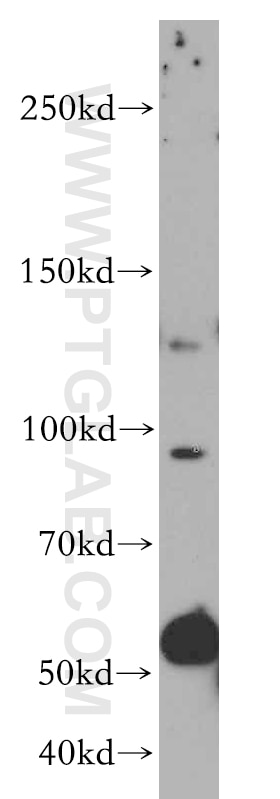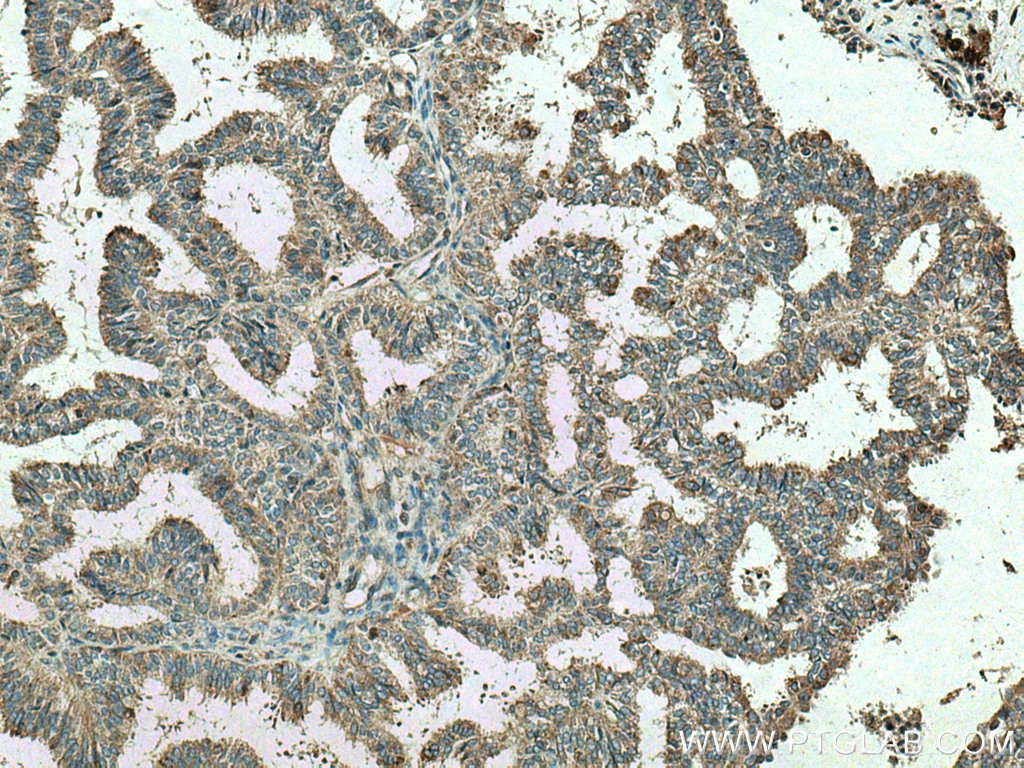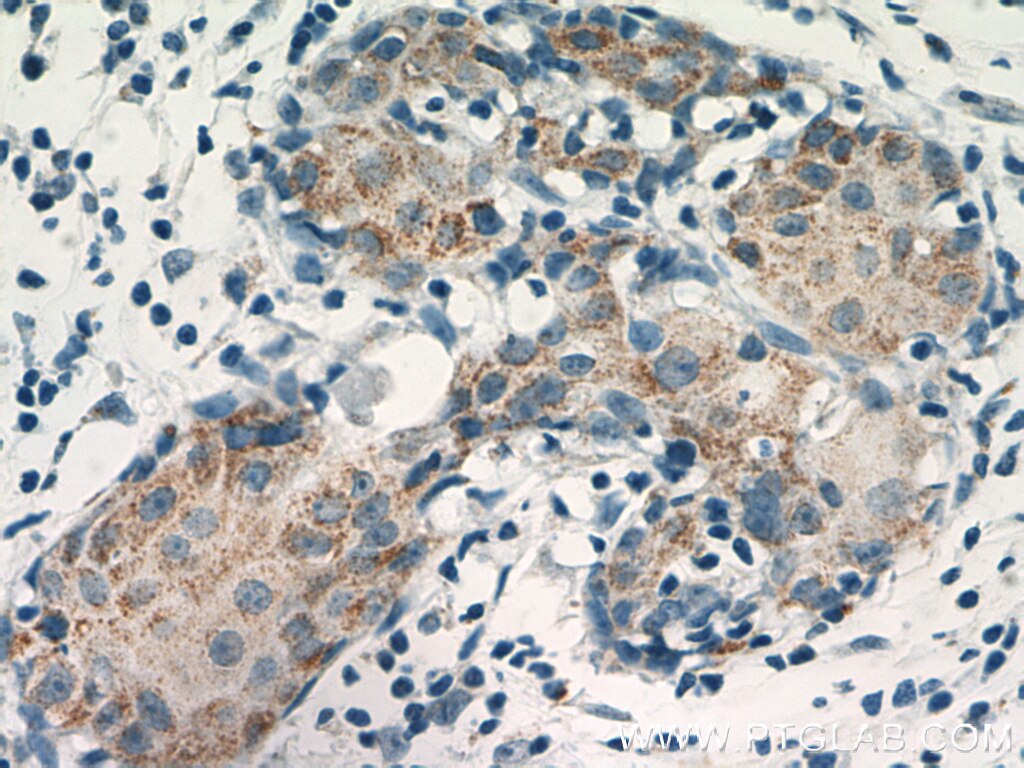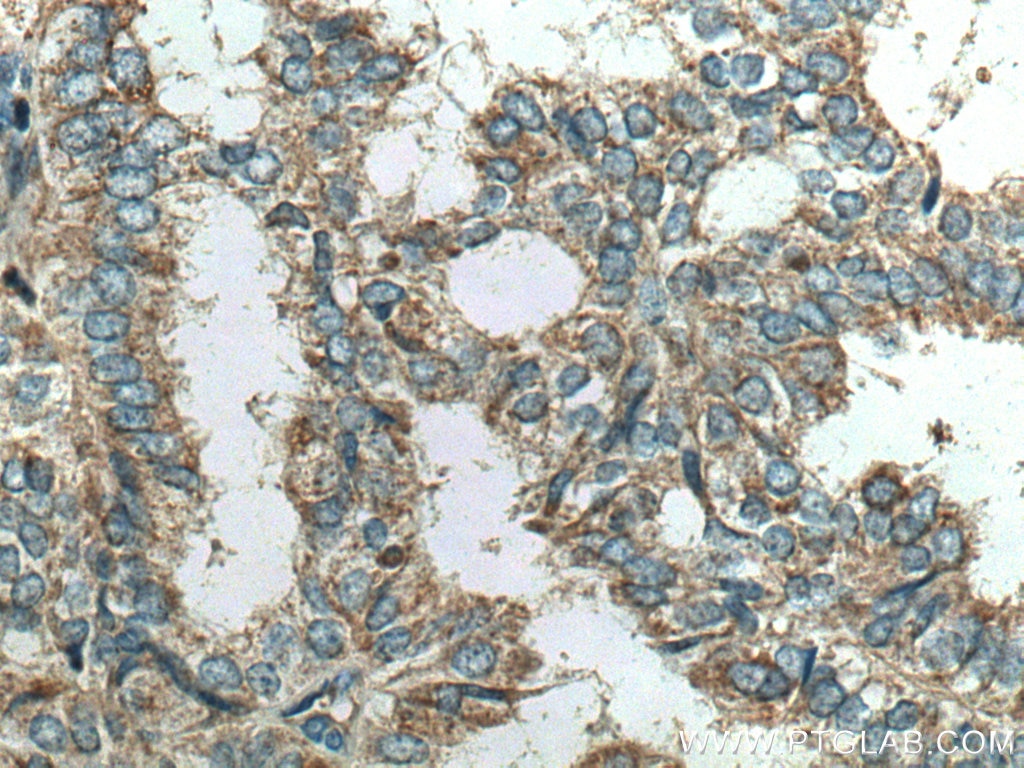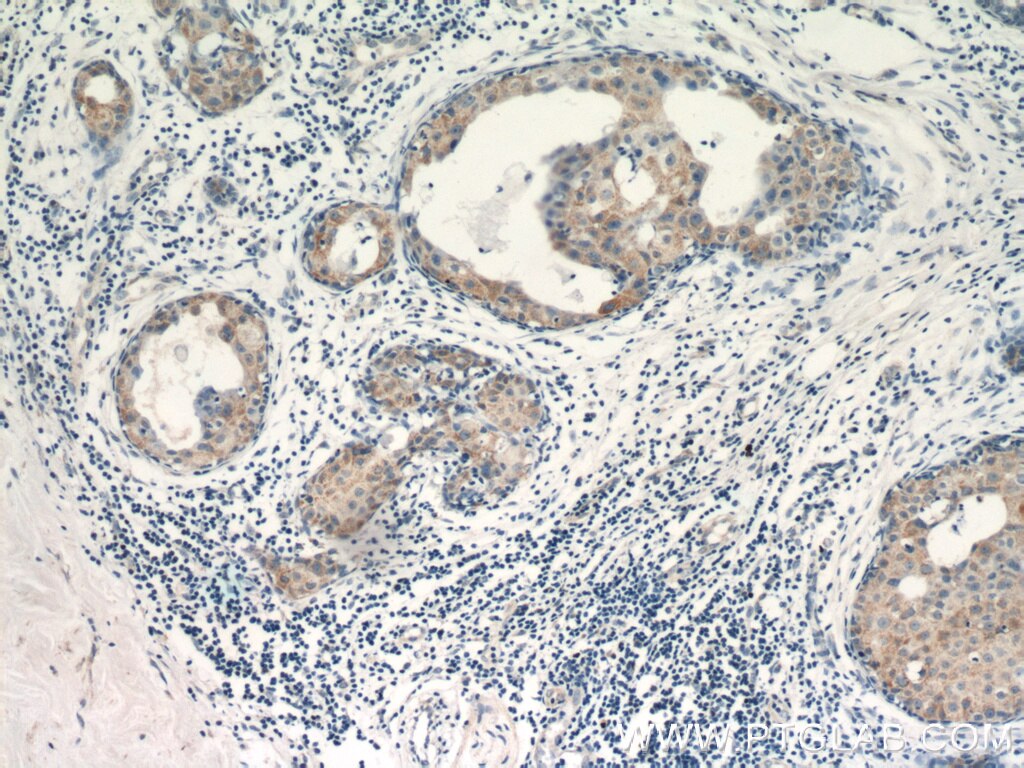Validation Data Gallery
Tested Applications
| Positive WB detected in | MCF7 cells |
| Positive IHC detected in | human ovary tumor tissue, human breast cancer tissue Note: suggested antigen retrieval with TE buffer pH 9.0; (*) Alternatively, antigen retrieval may be performed with citrate buffer pH 6.0 |
Recommended dilution
| Application | Dilution |
|---|---|
| Western Blot (WB) | WB : 1:500-1:1000 |
| Immunohistochemistry (IHC) | IHC : 1:50-1:500 |
| It is recommended that this reagent should be titrated in each testing system to obtain optimal results. | |
| Sample-dependent, Check data in validation data gallery. | |
Published Applications
| WB | See 1 publications below |
| RIP | See 1 publications below |
Product Information
17802-1-AP targets VCPIP1 in WB, IHC, RIP, ELISA applications and shows reactivity with human, mouse samples.
| Tested Reactivity | human, mouse |
| Cited Reactivity | human |
| Host / Isotype | Rabbit / IgG |
| Class | Polyclonal |
| Type | Antibody |
| Immunogen | VCPIP1 fusion protein Ag12035 相同性解析による交差性が予測される生物種 |
| Full Name | valosin containing protein (p97)/p47 complex interacting protein 1 |
| Calculated molecular weight | 1222 aa, 134 kDa |
| Observed molecular weight | 135 kDa |
| GenBank accession number | BC094799 |
| Gene Symbol | VCPIP1 |
| Gene ID (NCBI) | 80124 |
| RRID | AB_10699873 |
| Conjugate | Unconjugated |
| Form | Liquid |
| Purification Method | Antigen affinity purification |
| UNIPROT ID | Q96JH7 |
| Storage Buffer | PBS with 0.02% sodium azide and 50% glycerol , pH 7.3 |
| Storage Conditions | Store at -20°C. Stable for one year after shipment. Aliquoting is unnecessary for -20oC storage. |
Protocols
| Product Specific Protocols | |
|---|---|
| WB protocol for VCPIP1 antibody 17802-1-AP | Download protocol |
| IHC protocol for VCPIP1 antibody 17802-1-AP | Download protocol |
| Standard Protocols | |
|---|---|
| Click here to view our Standard Protocols |
Publications
| Species | Application | Title |
|---|---|---|
Genes Dis Downregulation of nc886 contributes to prostate cancer cell invasion and TGFβ1-induced EMT. |
